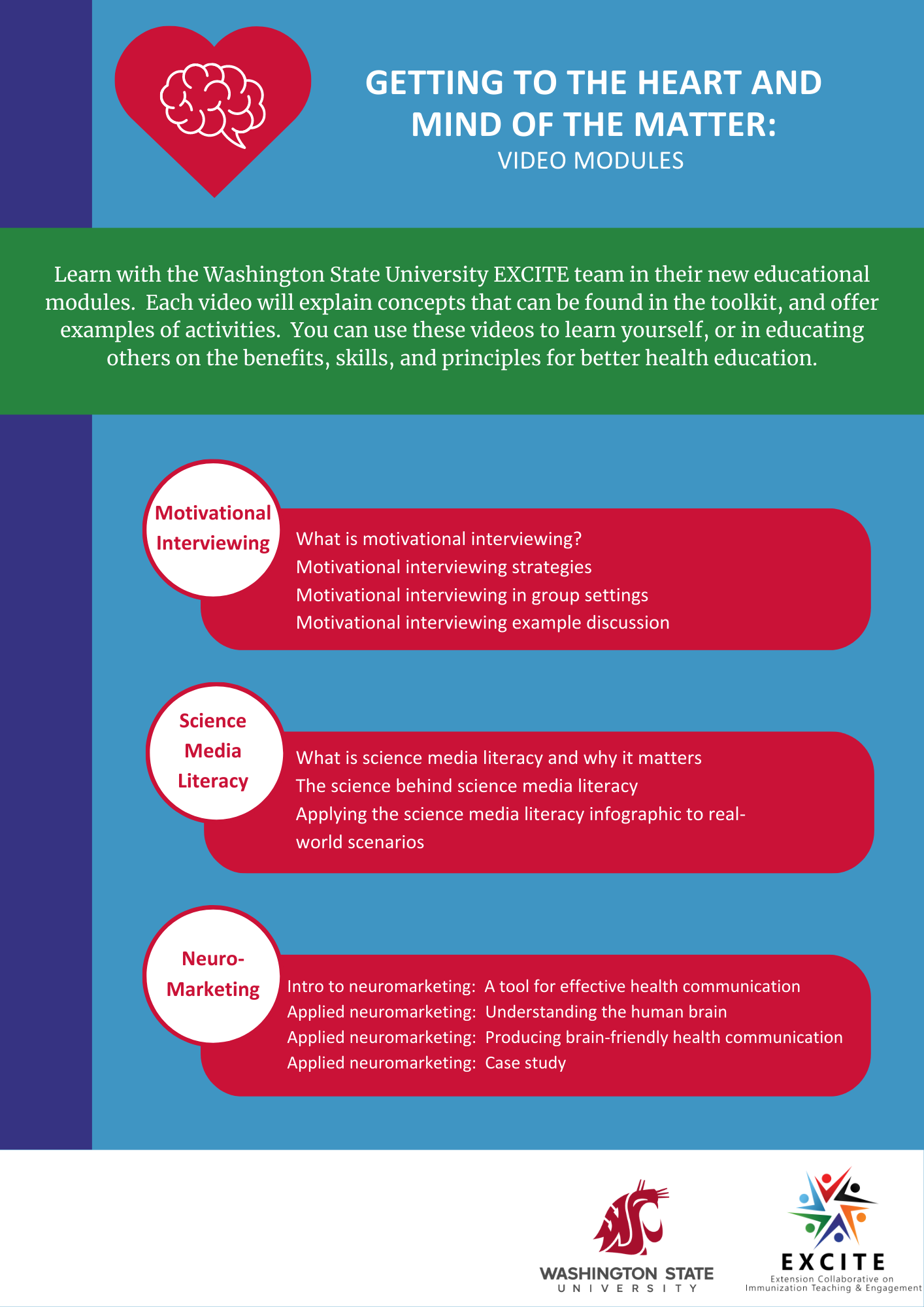
October is National Health Literacy Month, a time to highlight the importance of understanding and effectively communicating health information. At a time when accurate and reliable health information is crucial, Extension professionals feeling confident to be a trusted messenger to their audience is so important. If you haven't had a chance to check it out yet, we want to remind Extension professionals about a valuable resource from -the Washington State EXCITE team! Explore the toolkit and training modules and take the first step towards becoming a confident trusted messenger of health information!
The "Getting to the Heart and Mind of the Matter" Toolkit and Video Trainings
The "Getting to the Heart and Mind of the Matter" toolkit and video training modules were developed out of a need for Extension professionals to have tools and resources to effectively communicate about immunization education. These modules and resources are designed to empower you with the knowledge and skills you need to effectively communicate health information and bridge the gap between health education and desired outcomes.
What You'll Gain from These Training Modules
The EXCITE Team's toolkit and training program have been developed specifically to meet the needs of Extension professionals and partners involved in health fields. By engaging with these resources, you'll gain the following: confidence as a trusted messenger of accurate health information, enhanced communication skills, tools for assessing emerging data, and knowledge on how to optimize campaign messages that resonate and lead to positive health outcomes.
What You'll Find in the Toolkit and Training Modules
The toolkit and video training modules are engaging and packed with valuable insights. Each module is complemented by corresponding slides and handouts, making it easy for you to follow along and apply what you've learned. They cover key areas including:
Motivational Interviewing:
- How to communicate confidently with anyone about adult vaccinations
- Build skills to avoid unpleasant confrontations while maintaining trust and credibility
Science Media Literacy:
- How emotions can provide valuable cues for critical thinking
- Build skills to critically assess emerging data and counter media misinformation to increase trust in adult vaccines
Neuromarketing: Brain Friendly Messaging
- How brain science provides key insights to optimize campaign messages
- Build skills to maximize confidence in adult vaccines and willingness to engage in education efforts when designing messages for key audiences.
How to Access the Toolkit and Training Modules
You can access the video training modules and resources directly from the Washington State EXCITE Team's playlist, which is available below. Dive into these training resources and empower yourself to be a trusted messenger of health information in your community!
Let's celebrate National Health Literacy Month by equipping with new tool and resources!

Comments (0)